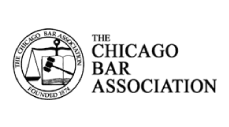Chicago International Child Abduction Attorney
Experienced Divorce Lawyers Representing Clients in Cases Involving International Child Removal in Chicago, Illinois
When parents divorce, or when unmarried parents separate, deciding how to handle child issues can be one of the most contentious issues that must be resolved. When parents originate from separate countries, these disputes can become very complicated, and when one parent attempts to move children across international borders without the other parent's approval, resolving these matters quickly becomes incredibly urgent.
In these cases, you need an attorney who is well versed in international laws and treaties and who understands how to settle matters of jurisdiction involving courts in the United States and other countries. As a delegate to the Hague Convention on International Child Abduction, Attorney Stephen M. Komie has a rich understanding of how international law applies to matters of child removal, and he has a great deal of experience successfully representing clients in international child abduction cases.
Understanding How U.S. Law Applies to International Child Removal
In the United States, the International Child Abduction Remedies Act (ICARA) governs the procedures that U.S. courts use to implement the Hague Convention on International Child Abduction. The goals of both ICARA and the Hague Convention are to promptly return children to the country where they have habitually resided, and to protect parents' custody rights across international borders.
Under ICARA, Hague Convention cases may be heard in either state or federal courts. The parent who believes their child has been wrongfully removed or retained will file a petition in the jurisdiction where the child is currently located.
The petitioner bears the initial burden of proof to show that a child has been wrongfully removed or retained. This means that they must establish by a preponderance of the evidence that the removal or retention of the child across international borders meets the Hague Convention's definition of "wrongful."
If the petitioner successfully establishes wrongful removal or retention of a child, the respondent can oppose the return of the child by offering one of the following affirmative defenses:
- Risk of harm - The respondent must provide clear and convincing evidence that the child's return would put them in grave risk of physical or psychological harm, or that the return would otherwise violate the child's human rights and fundamental freedoms.
- Consent or acquiescence - The respondent must show by a preponderance of the evidence that the petitioner consented prior to the child's removal or acquiesced subsequent to the removal or retention.
Courts may also deny the return of a child if more than one year has elapsed since the initial removal and it can be demonstrated that the child has settled into their new environment. A child's objection to the return may also be factored into the decision if they are determined to be of the appropriate age and maturity level for a court to consider their opinions.
An Attorney Experienced in International Child Removal Cases
With Mr. Komie's experience as a delegate to the Hague Convention and as an attorney representing clients in international child abduction cases, you can rest assured that your parental rights will be protected in disputes over child removal or retention. The attorneys of Komie and Associates will determine how laws in the United States and other countries apply to your situation and aggressively advocate for your parental rights and the best interests of your children.
Contact a Chicago international child abduction attorney at 312-263-2800 to schedule an initial consultation. We serve clients in Chicago, Springfield, Rockford, and throughout Illinois and the United States.









 Map & Directions
Map & Directions




